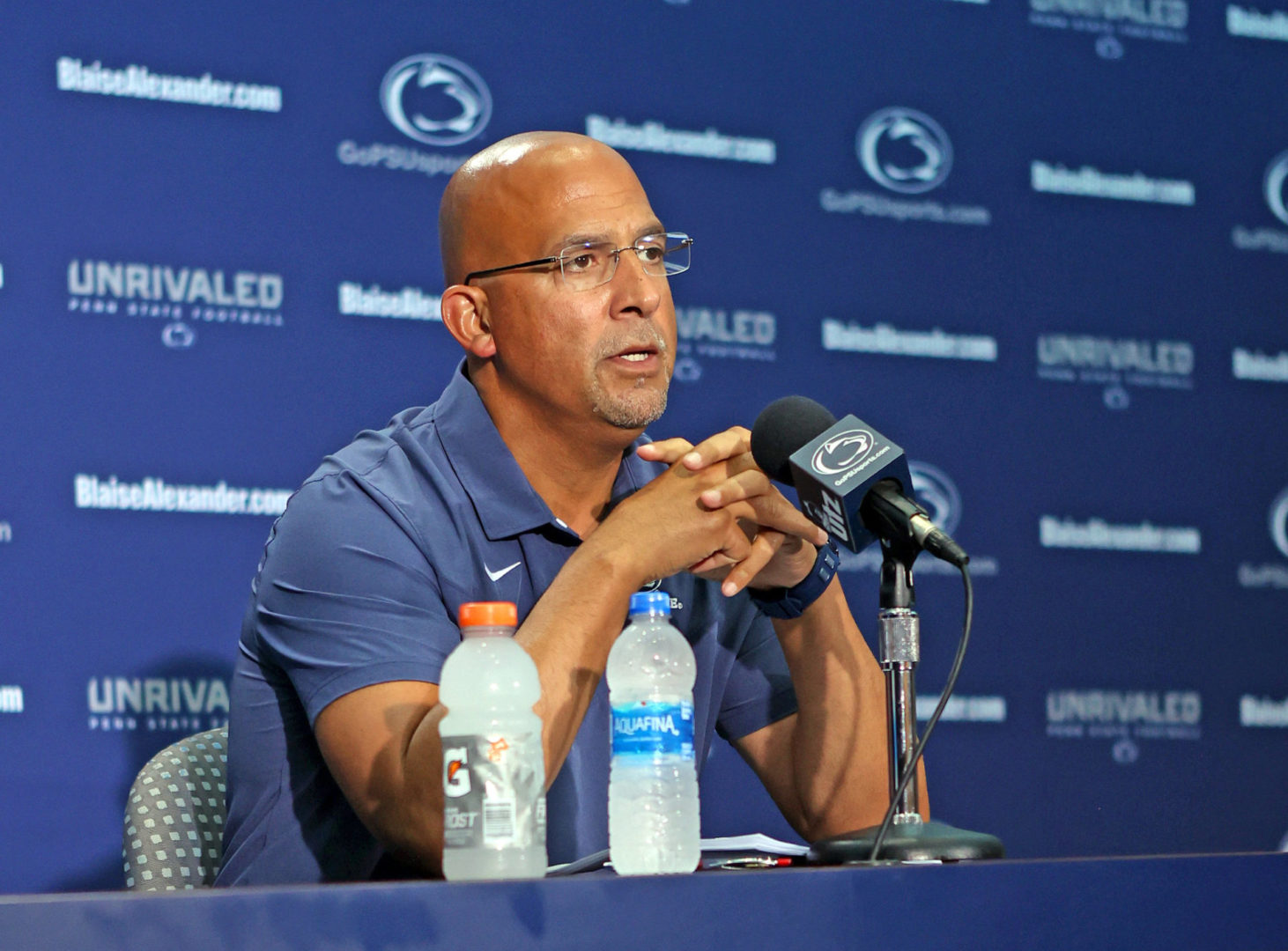Every coach has their fear. The thing their team is the worst at, the weakness they’re hoping someone won’t exploit, the mistakes they hope their team won’t make. It is natural. Coaching is effectively a game of risk management and mitigation. Risk, failure and mistakes are the hallmarks of a bad night of sleep.
Of course, most coaches won’t tell you exactly what they want to avoid or what exactly it is that worries them. On the other hand, by the end of the season those weaknesses aren’t a secret either. Penn State couldn’t run the ball in 2021. That didn’t take decades of football knowledge to figure out. All the same something is keeping Penn State coach James Franklin and Purdue coach Jeff Brohm up at night.
They might not tell you everything — but maybe a glimpse.
“That’s where the depth is important, right?” Franklin said on Monday in reference to Purdue’s offensive tempo. “The other thing obviously that we’ve discussed is having an offense that’s able to show all these different things [to your own defense in practice.] All the way back to my time at Vanderbilt, that was something that was really important to me, is to be able to have offensive, defensive units that play complementary football.
“Now your defense, it’s not like they’re facing an offense all spring and all camp that is really only one-dimensional … When it comes to tempo, we do enough of that on offense. We’ve had some tempo periods, as well, that I think have been valuable. They’ve been valuable from that perspective. We understand what [Purdue would] like to do. Obviously we’ve studied a lot. I think one of the things you have to do is be able to watch TV copies, as well, because when you just watch the coaches’ copies, those things are all cut up so it doesn’t really give you a good understanding of the flow and the speed. Then there’s also some of the analytics stuff that we use where it can tell you on average they’re snapping the ball at this amount of time on the clock. So we use all that.”
Franklin isn’t wrong about Purdue’s tempo. The Boilermakers cranked out 967 plays last season which was good enough for the 18th most in the nation and second-best in the Big Ten, just three plays behind conference champion Michigan, which played an extra game. Of course getting off a lot of plays doesn’t mean you’re playing quickly all the time, but there’s only 60 minutes to work with. The question in 2022 will be if Purdue can do it without all the experience it had in 2021. Time will tell.
Franklin also isn’t wrong to note that his own team gives Penn State’s defense plenty to work with each week in practice. The Nittany Lions managed to snap the ball 923 times last year on offense which was fourth in the Big Ten. Compare that the Big Ten last Illinois and just 790 plays over 12 games. Tempo can’t surprise you if you see it all the time.
As for Brohm, well everything about Penn State worries him. Maybe a bit of PTSD from the Nittany Lions 35-7 thumping of Purdue in 2019 is somewhat to blame there.
“I think offensively they were able to do whatever they wanted,” Brohm said on Monday. “Ran the ball on us, threw the ball on us, ran nakeds, threw it to the tight end, utilized the running back, the quarterback run game. … even when you look at the Arkansas game where they lost in the bowl game, Arkansas didn’t throw the ball on them. That didn’t happen. The quarterback had to run around and make plays, which that’s not our strength right now. So we have to play to our strength. But that’s their strength as well.
“So it’s a tough matchup. We’ve worked hard to get prepared for it, but we’re going to have to play well, and we’re going to have to see how we match up against a really good football team that has quite a bit of experience at certain positions. The physicality of it, the speed of it, we’ll just see right away where we’re at after Game 1.”
Penn State is just a four-point favorite with a few days before kick, a fair but modest lean toward the visiting Nittany Lions. But as you might expect, being the favorite is far from the likes of Franklin’s or Brohm’s mind. It’s the big issues and the little mistakes that they’re putting their money on deciding the game. Whatever the final score is.
“I think we all watched college football last weekend,” Franklin said. “A lot of things show up that traditionally show up in early games, right? Twelve guys on the field or 10 guys on the field, pre-snap and post-snap penalties, ball security, things that you work really hard to try to make sure that those things don’t show up in your early games.”



